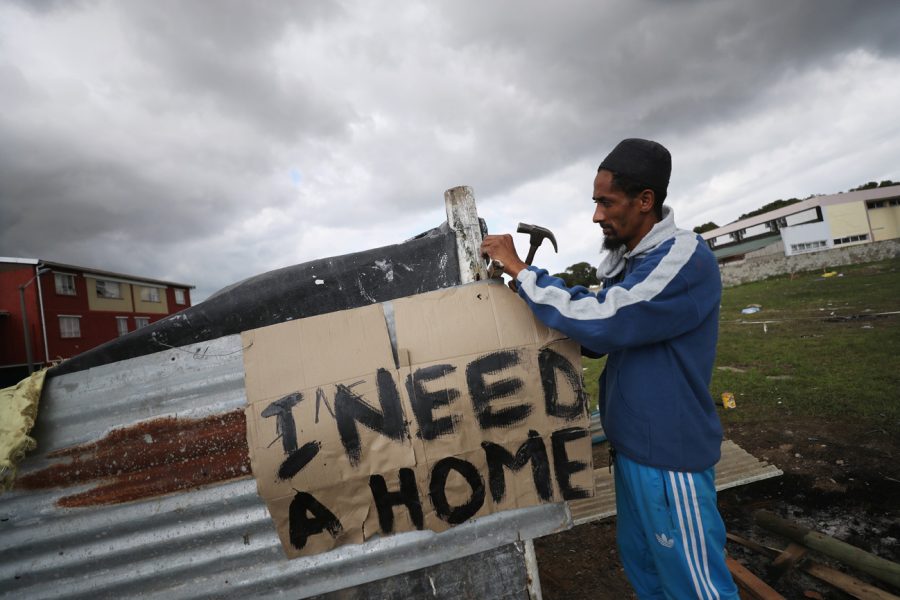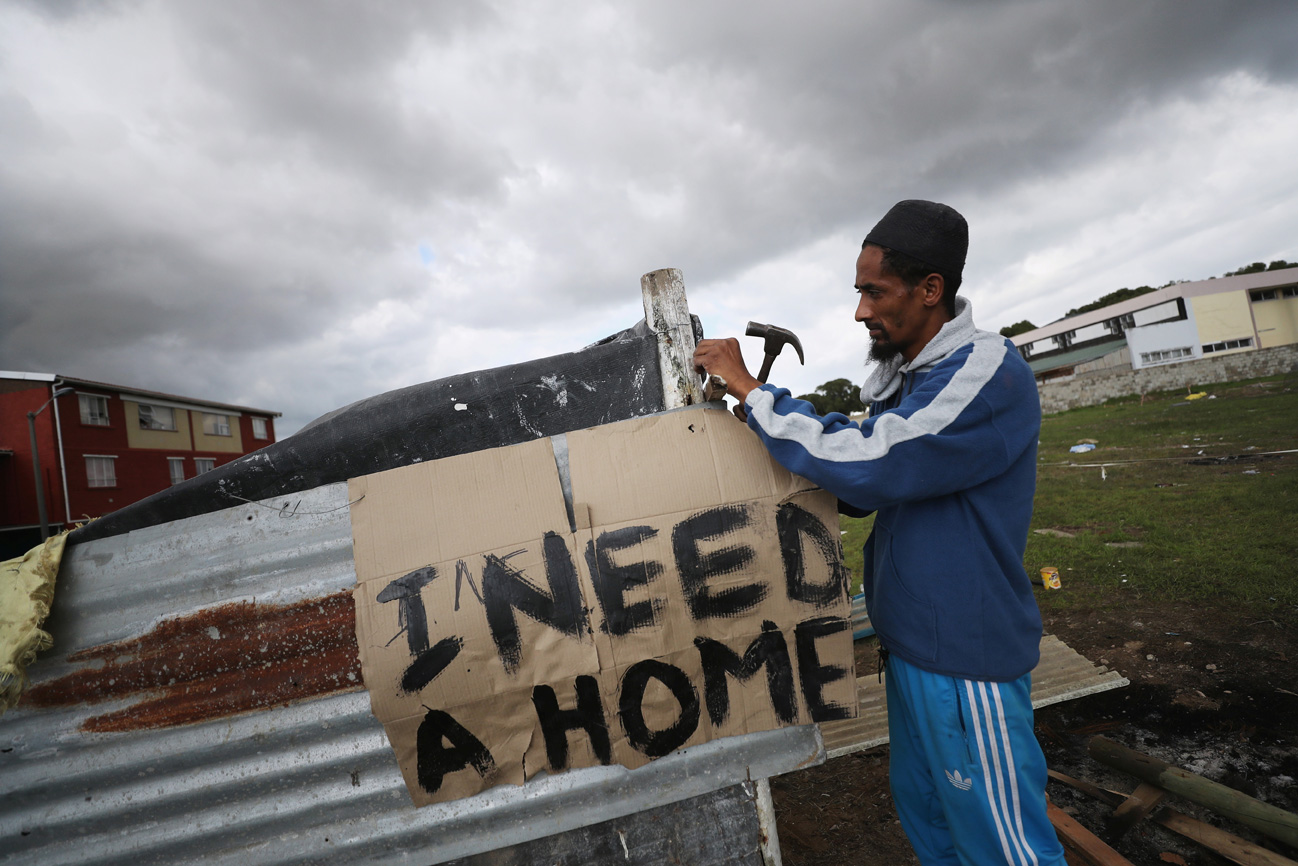
South Africa’s Cities Hold Key to Ramaphosa’s Land Plan
JOHANNESBURG (Reuters) – South African father of nine Frank Mapara has been waiting nearly three decades to own a plot of land in the Johannesburg slum he calls home. If President Cyril Ramaphosa, who came to power in February after the African National Congress ousted Jacob Zuma, can keep his promise to redistribute land to […]

JOHANNESBURG (Reuters) – South African father of nine Frank Mapara has been waiting nearly three decades to own a plot of land in the Johannesburg slum he calls home.

If President Cyril Ramaphosa, who came to power in February after the African National Congress ousted Jacob Zuma, can keep his promise to redistribute land to the poor, Mapara is confident the new man can lead the ruling party to victory in next year’s parliamentary election.
“I see Ramaphosa as better. If they give people the land, they are going to vote for him,” said 80-year-old Mapara, who built a shack in the then deserted Slovo Park in 1990, the year Nelson Mandela’s release from prison gave millions of poor black South Africans hope for a brighter future.
“We want land. We have suffered. They must give us because we’ve been poor a long time.”
Land is an emotional issue in South Africa, where inequality and racial divisions persist long after the end of apartheid.
The debate has so far focused on farming and rural areas but following a land summit last month Ramaphosa said towns and cities would be a high priority in his drive to expropriate land without compensation.
The ANC has been forced to get a grip on the problem because of the election threat posed by the Economic Freedom Fighters, a hard-left party that is encouraging restive communities to occupy land.
Some demonstrations have turned violent. Protesters who occupied vacant land outside Cape Town in March burned cars and hurled rocks at police.
If Ramaphosa can make progress on the issue, it would give a big boost to the ANC, which has steadily lost support since sweeping to power in 1994.
“LOW-HANGING FRUIT” – Urban Land
The ANC lost some major urban areas in 2016 local elections to a coalition led by the Democratic Alliance, the main opposition party, but analysts expect the ANC to retain national control next year.
A poll released last week by Citizen Surveys, an independent research firm, found 38 percent of people were more likely to vote ANC after it announced plans to redistribute land without payment. For black voters, this rose to 51 percent.
Black people are 79 percent of the total population but own seven percent of urban land.
The ANC has said little about how it will implement its plan but two party sources told Reuters the basic strategy.
Special teams will identify unused land and begin giving people property rights in areas where jobs are to be found rather than in distant townships.
Giving people dormant land – some owned by local governments – would pave the way for expropriation without compensation.
“Urban land is low-hanging fruit. There is well situated state-owned land that could be freed up relatively easily,” said land expert Aninka Claassens.
“If you could have poor people in the centre of cities in low-cost housing it would be a very symbolic change.”
Privately owned land is not expected to be expropriated until after the election. There are many small urban plots unlikely to cause major disputes with owners.
Just mentioning land expropriation can make investors wince, evoking the violent farm seizures in Zimbabwe under Robert Mugabe that helped bring a promising economy to its knees.
The mismanagement and corruption of the Zuma era have made many people nervous about how the land issue will be handled.
INVESTOR SUPPORT
Many business leaders have been tentatively supportive, appreciating the importance of land to the masses and hopeful that investor-friendly Ramaphosa will ensure that any changes will not hurt growth or food production.
“Business has got comfortable with the idea of accelerated land reform,” said Colin Coleman, head of Goldman Sachs South Africa. “But business is very strongly against any tipping over into the dilution of property rights.”
Giving more poor South Africans land will not solve the huge challenges faced by Ramaphosa: government corruption, sky-high unemployment and relentless demands for jobs, houses and basic services.
Since 1994, the ANC has built more than 3 million low-cost houses and provided electricity to 85 percent of homes, compared with just 58 percent in 1996.
But to poor South Africans, living in shacks they don’t own in impoverished townships, while the rich enjoy luxury homes with swimming pools, doesn’t feel like Mandela’s inclusive “Rainbow Nation”.
Owning land removes the threat of eviction, allows residents to raise capital and gives families something they can hand down to the next generation.
“You give them land, they start having hope,” said Slovo Park community leader Lerato Marole, waving at a group of bare-foot children kicking piles of rubbish.
“Land gives you dignity. Without land you are nothing.”
(Additional reporting by Ed Stoddard and Alexander Winning; Writing by Joe Brock; Editing by Giles Elgood)
